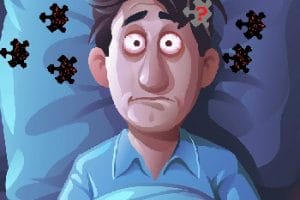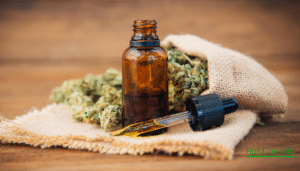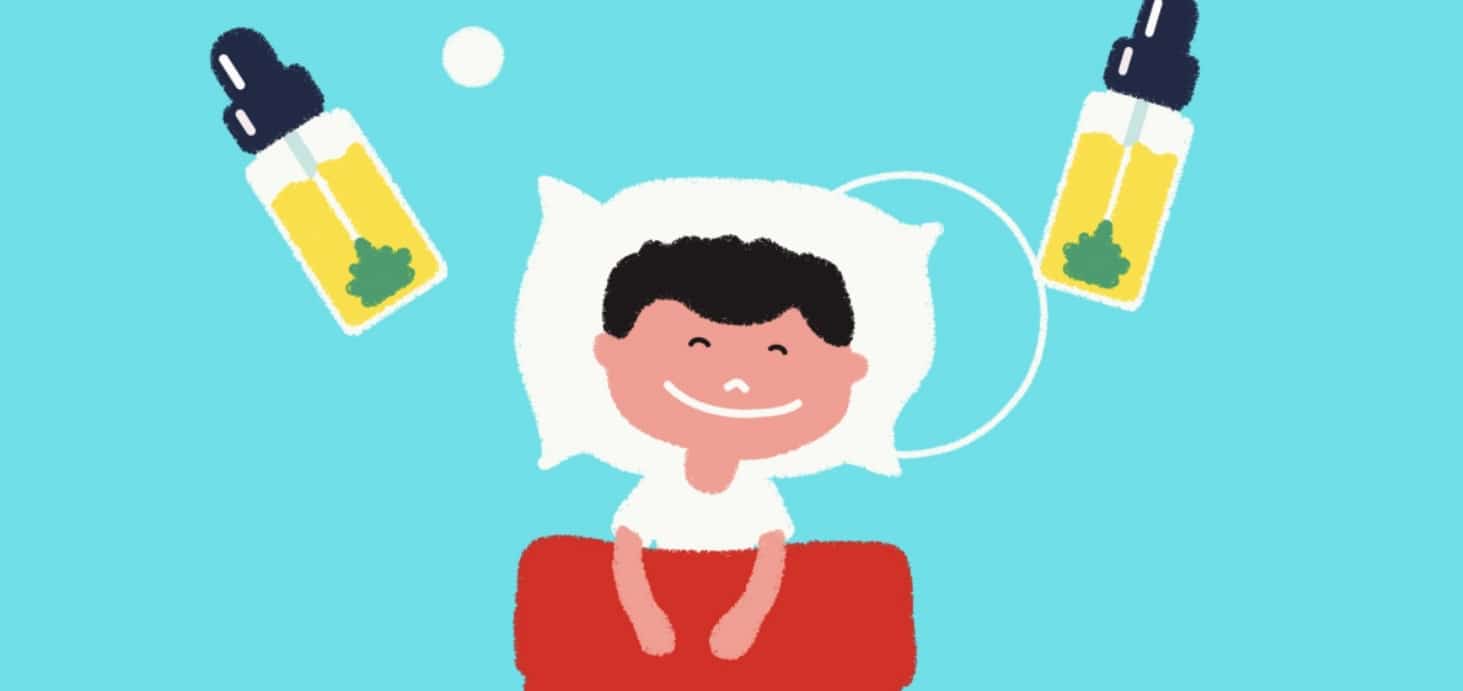
CBD (cannabidiol) is a cannabinoid unique to the cannabis plant, along with the controversial THC (tetrahydrocannabinol). Widely used in France and in the world for some years, CBD has a special legislative status. GThanks to numerous testimonies, che hemp product appears more and more, as a natural alternative without side effects, to some treatments against chronic pain, anxiety and insomnia. CBD does not yet benefit from the designation “remedy” or “medicine” as such. But, many researches demonstrate its therapeutic virtues. At present, its action remains under study because it is embedded in a very complex system of our body. Even so, the variety of CBD products is only increasing. The craze for this molecule does not allow any doubt about its short-term benefits, especially on sleep. If no study to date has demonstrated by “a + b” its direct action against insomnia, its use by CBD consumers to find a restful sleep is not uncommon. We are then entitled to formulate the hypothesis: Does cannabidiol (CBD) help to sleep?
Sleep disorders
The consequences of a lack of sleep
Sleep disorders are a worrying problem that affects many people, especially younger and younger people.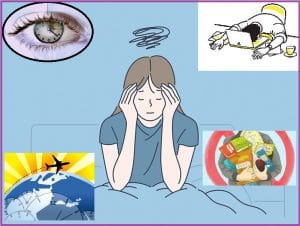
- Stress, the number of hours spent in front of screens (blue light), lifestyle, junk food or travel (jet lag) are the main actors of this disorder.
As reported in a 2009 survey by the National Institute of Sleep and Vigilance, more than one in three people are affected by this problem (1).
Attention, it is important to know how to differentiate :
- the fact of not sleeping occasionally, when for example one has a punctual worry to manage.
- real disorders that affect the quality and quantity of sleep. They are regular.
Indeed, if the fatigue felt in the first case can lead to difficulties in facing the next day, in the second case, it is the entire life (social, professional, emotional, health) of the individual that is impacted if this problem is not resolved quickly.
Before we can understand where, why and how CBD can help with sleep, we must first be able to distinguish the types of disorders that exist. Then, to find their cause!
The different causes of sleep disorders
We distinguish no less than 80 sleep disorders. But, as reported by the National Institute of Sleep and Vigilance in 2009 (1) some are much more frequent and important than others:
- Insomnia: this leads to a significant lack of sleep. They represent 84% of the cases of these disorders.
- Hypersomnias: they cause an excess of sleep
- Circadian cycle disorders caused by the dysfunction of an individual’s internal clock.
- Parasomnias: they generate multiple conscious or unconscious awakenings (sleep apnea, sleepwalking…). Therefore, they prevent deep and restful sleep.
It is important to remember that sleep is essential for good health. The College of Physicians recommends:
- for a healthy adult to sleep about 8 hours (6 hours minimum).
This recommendation is based on the essential needs of the body to recharge its batteries and helps to avoid physical ailments such as :
- headache
- the risks of being overweight
- cardiovascular deficiencies
- digestive disorders
Sleeping well also helps prevent psychological ailments such as :
- a state of stress
- a tendency to depression
- a lack of attention
CBD for sleep
There are many medications to fight insomnia and other sleep disorders (sleeping pills, anxiolytics …). However, it is not uncommon to see the long-term side effects that these treatments can have on the body. In particular, addiction.
The numerous proven or still being studied virtues of CBD can then be a 100% natural and terribly effective alternative against these evils by acting on their causes.
Chronic pain
They can be a factor in sleep dysfunction. Indeed, who has never been awakened in the middle of the night by a cramp, a dental pain, a headache, etc.?
is known to
CBD
has analgesic and anti-inflammatory effects. As a result, the feeling of these ailments is lessened. This action allows the cannabidiol consumer to fall asleep more easily and in a prolonged way. A study published in 2007 by Ethan B Russo supports this finding (2).
Stress
Stress is directly related to lifestyle (professional, personal, …) or, can be caused by a trauma. It is a significant factor in sleep disorders. Even if it is a one-time event, stress can have a significant impact:
- as soon as you wake up, you feel tired. However, he must take on his usual day. As a result, the stress level increases. This results in a further delay in his next sleep. It’s the snake that bites its own tail!
Here again, CBD can effectively intervene on this problem. All CBD lovers know the deep relaxation that this molecule naturally induces in the body. This relaxation of the body and brain allows the body to rest and thus enter more easily into a sleep phase.
The potency and duration of the effects of CBD depend :
- the method of absorption: vaporization, infusion, sublingual, ingestion, inhalation, etc…
- the dosage: especially for CBD oil
- the physiology of an individual
But despite everything, we can affirm with a quasi certainty that its benefits will act a good part of the night. They will thus allow a quality sleep during this time.
Anxiety
This nervous state settles in over time. It can be slightly differentiated from the more occasional stress. It therefore represents an important and profound factor responsible for sleep disorders such as insomnia.
The anxiolytic effects of CBD come from its power to inhibit REM sleep responsible for untimely and long-lasting awakenings in anxious people. This action of CBD is highlighted in studies conducted in 2012 at the Department of Medicine in Taiwan (3).
To understand the benefits of CBD for better sleep, it is therefore necessary to understand where and how cannabidiol acts in the body.
The endocannabinoid system, cannabinoids (CBD and THC) and sleep
Our body has its own cannabinoid system (CES). The latter is located in the brain as well as in the rest of the body. It therefore collaborates with its own cannabinoids (anandamide and 2 arachidonylglycerol) and its
CB1 and CB2 receptors
receptors specific to these molecules.
Cannabinoids in cannabis have more or less affinity for these receptors. Therefore, the responses are more or less important depending on the concentrations absorbed and the natural effect of the active substance concerned (THC or CBD essentially).
THC
THC has strong affinities with CB1 and CB2. It would have interesting properties to fight against the sleep disorders. But, being itself a problem for health (addiction, paranoia, anxiety …), it is strongly discouraged to use it. In any case, it is forbidden to consume it! Indeed, in France, this substance is classified as a drug. It is therefore illegal!
CBD
CBD has no affinity for endocannabinoid receptors. On the other hand, it has an action on the enzyme (FAAH) responsible for the regulation of anandamide (commonly called “happiness hormone”). This results in a high production of this beneficial substance. This release leads to a relaxation of the body and mind.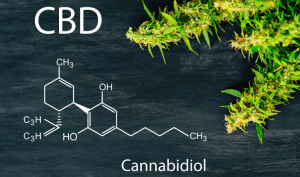
A person who is stressed or has mild pain but enough to prevent them from sleeping well:
- if she consumes a CBD product (hemp oils, CBD flowers, cannabis seeds, …), she can then get the benefits of this cannabinoid to fall asleep. Deep soothing and relaxation guaranteed!
The star products with CBD to sleep well
Several CBD products are found on the market (cannabis seed oil, pure CBD oil, hemp flowers, resin…) but some are more interesting than others to sleep well.
We have seen that CBD does not act directly on sleep but rather on the causes of its dysfunctions:
- it relaxes an anxious person for example.
If we consider an 8-hour restorative night, it is obvious that the amount of CBD in the product consumed must be sufficient to be sustainable and effective. For this reason, cannabis oil is the product predisposed to this use.
CBD oil for sleep
It is found in different concentrations of CBD (5, 10, 20%, ..). Moreover, it is free of all molecules of THC or at least, it respects the threshold of tolerance of the country (< 0,2% in France). In addition, it has the great advantage of allowing various modes of absorption according to the preferences of each:
- sublingual, inhalation, drink or in capsules
It is therefore the most obvious natural alternative to sleeping pills, anxiolytics and analgesics.
Another important asset of CBD hemp oil is the presence of a very special cannabis flavonoid: Beta-myrcene. This flavonoid would have sedative properties. They are revealed by a scientific article of December 2008, according to studies carried out at the Faculty of Medicine of Mexico on: the effect of CBD on anxiety (4).
Flowers and
and cannabis resin to sleep
Hemp flowers or cannabis resin also generally contain this flavonoid. Their consumption is then quite relevant to help sleep. However, the ingested dose of cannabidiol from these products, is not as large and precise as that of a full spectrum or broad spectrum oil. It is this detail that allows the oil to keep the first place of the podium among the CBD products, to have a quality sleep.
The opinions have decided: CBD helps to sleep well
The consumption of CBD oil (or flowers, leaves, seeds…) from varieties of cannabis authorized in France (THC level < 0,2%) generates a more or less intense and long-lasting relaxing effect depending on :
- the dose taken,
- the mode of absorption: sublingual, cooked, inhaled or in capsules
- and physiology of each individual.
A person suffering from sleep disorders (insomnia, stress, chronic pain) will see this muscular and cerebral relaxation as an effective ally to fight against the causes of this dysfunction.
All being said, to answer the initial question: Yes, CBD helps you sleep well since it helps treat the causes rather than the consequences!
FAQ: CBD for sleep
[sp_easyaccordion id=”10973″]
References
- Press kit 9th National Sleep Day, March 2009, from the National Institute of Sleep and Vigilance (INSV): https: //institut-sommeil-vigilance.org/wp-content/uploads/2019/02/Presse-JNS-2009.pdf
Cannabis, pain, and sleep: lessons from therapeutic clinical trials of Sativex, a cannabis-based medicine, Ethan B Russo, Geoffrey W Guy, Philip J Robson, August 2007, from Chem Biodivers :
https://pubmed.ncbi.nlm.nih.gov/17712817/- Effect of cannabidiol on sleep disruption induced by the repeated combination tests consisting of open field and elevated plus-maze in rats, Yi-Tse Hsiao,Pei-Lu Yi,Chia-Ling Li, Fang-Chia Chang, August 2012, from Neuropharmacology: https://pubmed.ncbi.nlm.nih.gov/21867717/
- The nonpsychoactive Cannabis constituent cannabidiol is a wake-inducing agent, Eric Murillo-Rodríguez,Diana Millán-Aldaco,Marcela Palomero-Rivero,Raphael MechoulamRené Drucker–Colín, December 2008, according to Behav Neurosci : https://pubmed.ncbi.nlm.nih.gov/19045957/
